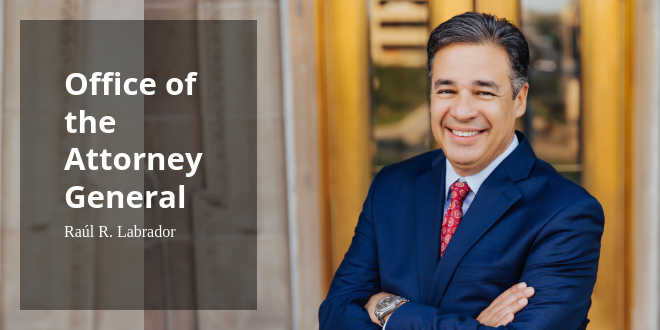Idaho State Board Rule requires all public schools serving grades 9-12 to be accredited by the Northwest Accreditation Commission (NWAC), a division of Cognia. The Idaho Accreditation Council and its staff has provided services to Idaho schools since 1917. Cognia Idaho is part of a network of over 30,000 public and private schools and districts in over 70 countries.
Idaho State Board of Education, Accreditation website
BOISE, Idaho — Last year, a couple of public school administrators contacted the Kootenai Journal over their concerns that the Idaho Department of Education has been outsourcing the accreditation process for all public high schools to a global organization currently known as Cognia. Even more alarming to the administrators was discovering the deep seated roots of Diversity, Equity, and Inclusion (DEI) that are built into Cognia’s performance metrics and the costly and lengthy process involved in obtaining the accreditation.
According to the public school officials, the DEI standards being advanced by Cognia are currently “being dismantled by astute public servants in higher education across our country.”
According to the Legislative Service Office, Senate Bill 1176 (2023) and House Bill 734 (2024) created laws that “each college and university shall verify no state appropriated funds are used to support Diversity, Equity, and Inclusion, or social justice ideology as part of any student activities, clubs, events, or organizations on campus.”
On December 18, 2024, Idaho’s State Board of Education issued a resolution on December 18 titled “Board Resolution on DEI Ideology in Higher Education,” which is hailed as one of the first steps to dismantling DEI ideology at the state’s eight institutions of higher education.
The questions now being asked revolve around how Idaho’s high schools and colleges are supposed to shake off the global directives of Diversity, Equity, and Inclusion when the State Board and Department of Education continue to outsource to accrediting bodies that propagate the tenants of DEI in their performance standards—Cognia for high schools and the Northwest Commission on Colleges and Universities (NWCCU) for colleges. North Idaho College is intimately familiar with the interference of NWCCU in its operations.
The Idaho public administrators stated, “we would like to shed light on Cognia’s control over Idaho schools, and beyond that, we would like to help champion Idaho as the state that began dismantling Cognia’s influence on American schools in every state.” These officials asked to remain anonymous as they anticipate some resistance to their endeavors.
There has been an ongoing struggle in Idaho between the legislature and executive agencies over rule making powers. Rule making is how the agencies enact the laws passed by the legislature. The rule requiring accreditation via Cognia made by the Idaho Department of Education appears to violate the Idaho Constitution. Additionally, Idaho statute relating to accreditation of public common schools appears to be in conflict with the Idaho Constitution. Also, the Idaho school administrators are concerned that about the added expense and bureaucratic headache this outsourcing has created for all public high schools.
First, the school administrators point to Article IX, Section 1 of the Idaho State Constitution which empowers the legislature to establish a system of free schools for the purpose of maintaining “the stability of a republican form of government depending mainly upon the intelligence of the people …” Then they pose this question: Does this section not require the people to be educated in the very republican form of government it seeks to uphold? Common sense would not only say, “yes,” but add that it would be necessary to be given a deep and exhaustive education into the American founders, their values, and the principles that shaped and established our great republic.
However, Cognia does not focus on the purpose of education established by Idaho’s Constitution. Instead its focus is “firmly on today and tomorrow—seeking what works in our schools and in others around the world, providing learning forums for skilled educators, and helping you provide students with the opportunities that knowledge brings.”
The public school administrators said this focus does nothing to provide the education needed to meet the constitutional requirement of keeping “the stability of our republican form of government.” Furthermore, Cognia has 30 standards, none of which make any effort to assess based on ensuring the stability of our republican form of government. Their list of standards begins with “Demonstration of Equity.” This means Cognia measures academic performance on an “equity” scale, instead of equal opportunity.
For example, it measures “racial disparities in suspensions” as equally important.
“How is this consistent with the purported values of limited government, merit based achievement, and equal opportunity that our country was founded on and Idaho prides itself in emulating?” asked the administrators.
They contend that Cognia’s performance standards violate the constitutional mandate of creating schools that keep our republic stable by requiring schools to comply with Diversity, Equity, and Inclusion procedures which many states are currently banning for their anti-American principles. “Other standards seem steeped in the type of collectivism our founders discarded for individual liberty and equality of opportunity. In fact, some Diversity, Equity, and Inclusion policies are violative of Title VII and Idaho’s Commission on Human Rights within the employment context,” stated the administrators.
Second, they highlight the Idaho Constitution and Idaho code as the source for the State Board of Education’s purpose and authority. Article IX, Section 2 of the Idaho Constitution: “The general supervision of the state educational institutions and public school system of the state of Idaho, shall be vested in a state board of education, the membership, powers and duties of which shall be prescribed by law. The state superintendent of public instruction shall be ex officio member of said board.” The general powers and duties of the state board are found in Idaho Code Section 33-107. Section 1 states, “Perform all duties prescribed for it by the school laws of the state.”
The supreme law of Idaho is the Idaho State Constitution, therefore, the primary purpose of school law is tethered to the standard set forth in Article IX, Section 1: “The stability of a republican form of government depending mainly upon the intelligence of the people, it shall be the duty of the legislature of Idaho, to establish and maintain a general, uniform and thorough system of public, free common schools.”
The Idaho public school administrators insist that the intent to provide a system of schools that fosters the intelligence of the people for the purpose of maintaining a stable republican form of government is unequivocal.
Third, they point out that Idaho Code Section 33-107(6)(b) grants the authority to accept and transfer academic credit to the state board. However, the board outsourced to Cognia the central mechanism of accountability that verifies and validates educational standards in the accreditation process.
The State Board of Education has transferred the power vested to it under Article IX, Section 2 of the Idaho Constitution to the global organization Cognia. In so doing, it fails to maintain its statutory obligations prescribed in Idaho Code 33-107(3) which says the state board shall: “Have general supervision, through its executive departments and offices, of all entities of public education supported in whole or in part by state funds.”
According to the administrators, “this section clearly demonstrates the state board shall have general supervision of all entities of public education. Public schools are using their distributed state funds to pay Cognia for an integral aspect of the education process via accreditation. Does this not make Cognia an entity of our public education system considering the importance accreditation holds?”
The administrators find it incredulous to take the position that the state board maintains “general supervision” of a global company. If they do not maintain general supervision, are they failing to comply with Idaho Code 33-107(3)? In effect, the mandate of 33-107(3) is contradictory in theory and practice with the authority listed under 33-107(6)(b) of the same code. In the former, the state board is tasked with general supervision of all entities of public education supported by state funds, and in the latter they are allowed to outsource accreditation to “an organization recognized by the board.” Recognition of an outside organization does not rise to the legal standard of having “general supervision” of said organization.
The school administrators expanded further. Idaho Code 33-107 establishes a precedent for explicitly stating when vested powers should be delegated, to whom and for what purpose. Section 4(a-e) gives specific instructions related to the delegation of vested power. Section 6(b) does not delegate the power vested in the state board related to accreditation. Cognia, through its assessment process and standards they create, acts as the final arbiter of accreditation without being specifically vested with the required legislative power. Consequently, Idaho Code 33-107(6)(b) is in conflict with Idaho Code 33-119 which states:
“The state board shall establish standards for accreditation of any secondary school and set forth minimum requirements to be met by public, private and parochial secondary schools, and those in chartered school districts, for accredited status; and the board may establish such standards for all public elementary schools as it may deem necessary.”
Nowhere in this language does it allow for the state board to outsource the establishment of accreditation standards to an “organization recognized by the board.” It states clearly that the state board shall establish standards for accreditation, not simply adopt standards created by a third-party company, especially one with a stated global agenda.
The second paragraph under Idaho Code 33-119 further demonstrates it is the state board’s legislative duty to make accreditation determinations:
“The board may withdraw accreditation from any secondary school after such period as it may establish when it has been determined that such school has failed or neglected to conform to accreditation standards; and it may reinstate such school as accredited when in its judgment such school has again qualified for accredited status. The board may further establish minimum requirements which any pupil shall meet to qualify for graduation from an accredited secondary school.”
The public school administrators said they have questions:
- Isn’t the purpose of having this legislated power vested in our own state agencies meant to ensure the underlying constitutional mandate of keeping the stability of our republican form of government?
- How is the State Board ensuring that Cognia’s assessments are consistent with the intent of our constitution, which is the original source for all school-related law?
- How are they fulfilling their legislated mandate of general supervision of a global organization not under their control?
- How did they delegate the power vested in them under 33-107(3) and 33-119, which clearly puts the duty to both accredit and revoke accreditation directly under the purview of the state board?
- Why does section 33-107 specifically state in several cases when power is to be delegated, for what purpose, and to whom, yet within the same code the vested power of accreditation is delegated without the same explanations?
When considered together, 33-107(1) mandates the state board performs all duties prescribed to it by school law. 33-119 states the state board shall handle all issues related to accreditation. Whereas, 33-107 (6)(b) states no Idaho postsecondary schools can accept course credits from schools not accredited by an “organization recognized by the board.” These sections create a contradiction in theory and application of law that must be addressed.
“Therefore, it is our position that Cognia has no lawful business being vested with this legislative power whose authority is directly born out of constitutional mandate and was never legislatively delegated to them,” stated the public school administrators. “The State Board does not have the authority to delegate away powers the legislature vested solely in them. If such powers are to be delegated, the extent and purpose should be explicitly stated and codified into law by the legislature.”
The Idaho public school administrators respectfully ask why a purported limited government state like Idaho engages in layers of unnecessary bureaucracy. “By outsourcing the determination of a school’s viability to an outside company, the state board is subverting its legislated constitutional duty.”
Furthermore, they want to know how the board is supposed to conduct oversight of an accreditation process not of their own making. “Schools are powerless to seek redress against this company if we disagree with their standards and assessments. We are held hostage with the threat of not achieving accreditation if we do not pay their exorbitant prices for services that do not comport to our constitutional principles, let alone our school’s academic pedigree.”
The current costs are $1,200 annually for membership, $1,000 for onsite evaluation, and $4,000 for accreditation review every six years. With 297 public high schools in Idaho, this amounts to $356,400 in annual fees, $297,000 for site visits, and nearly $1.2 million for six year renewals. To establish accreditation typically takes eighteen months, consumes hundreds of hours of staff time, and requires hundreds of pages of documentation.









